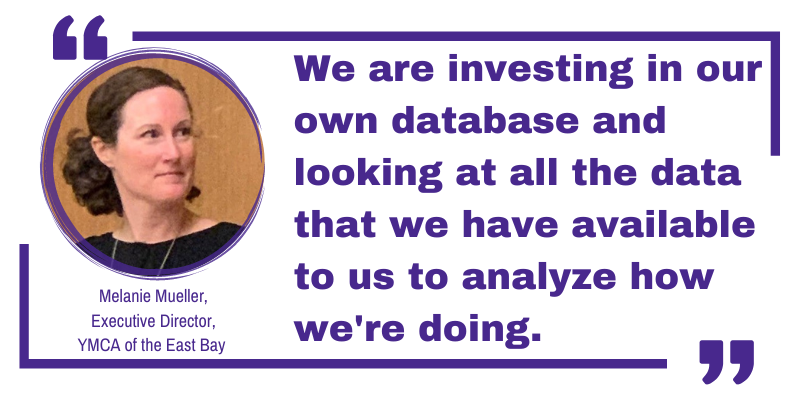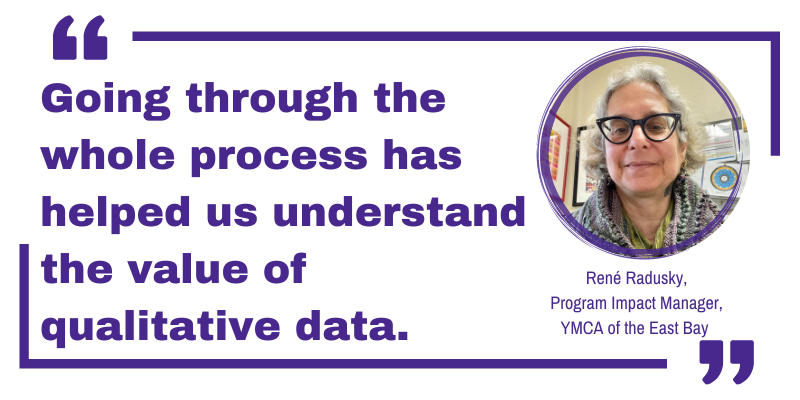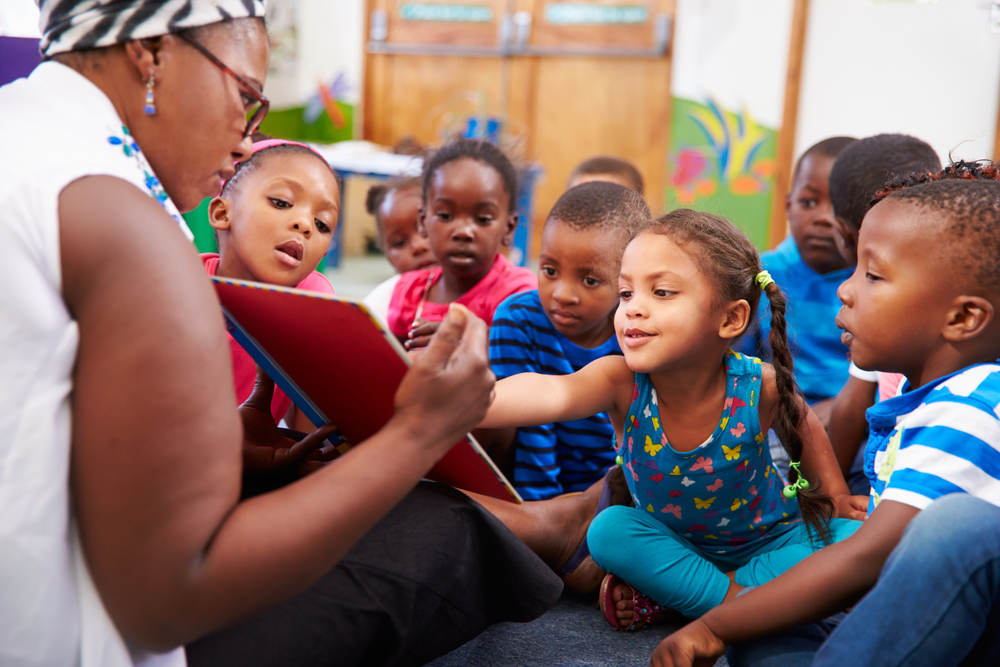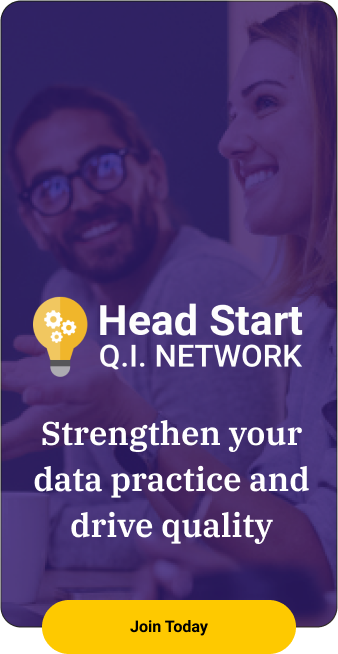YMCA of the East Bay directly operates 21 Head Start and Early Start Centers. They partner with four additional centers across Alameda and Contra Costa counties in California. They also operate state funded and migrant programs in Yolo and Sacramento counties. In total, the program can serve approximately 1,800 children at full capacity. They joined the QI Network in 2021.
Melanie Mueller has been with the YMCA of the East Bay for the past 16 years, and has served as Executive Director since 2020. René Radusky has served as the organization’s Program Impact Manager since 2021.
We sat down with Ms. Mueller and Ms. Radusky over Zoom. They two shared how they’re using CQI strategies learned in the QI Network to empower their staff and better serve their community. The following conversation has been lightly edited for clarity and brevity.
What brought you to the QI Network?
Melanie Mueller: The prior director of the program is very familiar with the network, and she recommended it. It seems like the work around data in programs has ramped up. It makes sense that we are looking at things analytically. We’re looking at different sources of information to make decisions and improve the programs.
I think that data work is here to stay. We are investing in our own database and looking at all the data that we have available to us to analyze how we’re doing and what the families really need. It’s getting more and more important, even to our funders, that we are able to share information in a certain way. All of that has led us to working with the Quality Improvement Network.
You’re working on an improvement project around teacher wellness. How did you land on that project?
Melanie Mueller: Teacher retention is really important to us. Because of COVID, we’ve lost a lot of teachers, as many early childhood programs have. Many of the children in the program are struggling. We noticed that the behaviors were escalated and the available services were diminished. Over the last couple of years, we implemented a Behavior Support Program to help children be successful in school and be able to stay safely in school, but also to help the teachers manage challenging behaviors in a group setting.
When you have an acute behavioral issue in a classroom, you need actual human beings supporting that child in a one-on-one manner. That’s why we hired a very highly qualified behavioral analyst. We also hired instructional assistants that do one-on-one support in the classrooms. They migrate around from center to center to children in need.
Now that we’ve implemented the program, we wanted to measure some of the impacts in regards to wellness and teacher retention. In our federal annual self-assessment, we did a study on how our behavioral supports impact the children, the families and the teachers. After we got the results, we felt like this would be something to explore further. And that’s where we made it our problem of practice. We decided to go deeper into how teachers felt before and after the support.
René Radusky: We try not to let our self-assessments sit on a shelf. We try to continually collect data and information around how we’re trying to fix whatever it is that we found in our self-assessment. We’re building on our self-assessment in a way that we didn’t expect to.
Were there any lightbulb or “aha!”moments that came out of your work with the QI Network?
Melanie Mueller: I think for the two managers that were involved in this—our Inclusion Manager, Dawn Paxson, and our Mental Health Manager, Dr. Anita Smith—they’ve definitely had some “aha!” moments. Working with a coach who’s encouraging them to dig deeper has helped them narrow down the questions that should be on an empathy interview, for example.
René Radusky: Going through the whole process has helped us understand the value of qualitative data. I’ve always collected qualitative data. There’s a push, especially post-COVID, to collect more qualitative data, because we want to listen to people. We want to hear their stories.

What’s next for your program?
Melanie Mueller: I can imagine that having empowered a couple of our managers, this project will actually lead to other projects. Whether we have a coach or not, next year during self-assessment, we could use some different methods that we learned. It’s really eye-opening in that way. It’s opening up possibilities.


